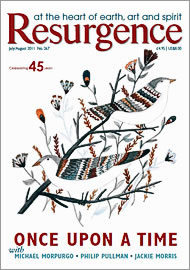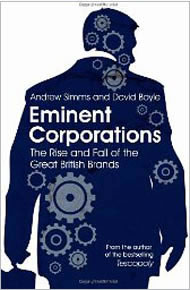The idea of writing a book called Eminent Corporations was inspired directly by Lytton Strachey’s classic work Eminent Victorians, which was published in 1918, when the calamity of the First World War shattered the faith and deference to authority of many. It looked back at revered figures of the Victorian age about whom there was a deluge of information but little critical assessment or understanding.
Strachey, an otherwise chronically frail man, raised a droll, astute hammer to heroes of the age like General Gordon and Florence Nightingale, and brought it down with wit on the reputations of individuals who defined ‘Britishness’. (The philosopher Bertrand Russell, like Strachey a conscientious objector, read it in prison and laughed so much the guards had to remind him that prison was a place of punishment.)
But as one age defined by the imperial power of states was coming to an end, a new one was flourishing, growing from the emerging power of corporations. And many of these were British. The boundaries of formal empire might have receded, but the reach of the corporation would, for decades, still sustain the nation’s power and influence around the world.
Yet within a few short decades, that too would change. Many of the corporations that both made and reflected an image of Britain in the 20th century would also be torn apart. Not, this time, by the elegant prose of a frail writer, but by the inexorable forces of economic globalisation – forces that once did the bidding of Britain’s national interest before turning against our most eminent corporations.
Strachey had almost single-handedly invented a genre of critical biography, but today, and especially where companies are concerned, a large vacuum remains. As David Boyle and I researched our new book, it rapidly became clear that these corporations and companies, including the likes of British Petroleum, Barclays, Cadbury, and Marks & Spencer had largely escaped the intense scrutiny that had become acceptable for public individuals. And this of course goes some way towards explaining why it is we are so often left surprised, bewildered and uncomprehending when things do go wrong.
As the friendly face of BP dribbled oil all around the Gulf of Mexico last year (and was also implicated more recently in backstage negotiations with Libya over the release of prisoners convicted of terrorist offences), we might have been a little less surprised if we had a better understanding of the company’s history. BP’s plants, for example, have been going up in flames sporadically at least since the early 1920s, when it was the Anglo-Persian Oil Company and its refinery at Abadan caught fire.
Back in 1953, Winston Churchill approved a coup against Mohammad Mossadegh’s government in Iran. A CIA operation led by Kermit Roosevelt, Jr. deposed Mossadegh and left a violent geopolitical legacy that still haunts us, but it saved the fortunes of BP.
What is also clear is that more critical corporate histories – we could call them ‘corpographies’ – would help make greater sense of the economic turmoil we currently live with.
They would illuminate why, for example, Barclays is now so far from its original Quaker roots that it can blithely affront public sentiments by appointing one of the world’s most over-paid bankers – Bob Diamond – to run its affairs. Or how the American junk-food giant Kraft came to buy another British eminent corporation, Cadbury (also of Quaker stock), and only did so funded by a nationalised British bank, RBS. We would understand better, too, how it was that the British textile industry died when it lost the patronage of Marks & Spencer.
Without the history, we are left, as Ben Elton once put it, feeling ‘mugged’ by economics. And we need these histories now, more than ever, because this is, without doubt, a turning point in the history of economics.
But if the old model is broken, what will replace it? Not a problem. We are surrounded by tried and tested alternatives including mutuals, cooperatives and trusteeship models. Companies that have different governance structures, like John Lewis and the cooperative movement, have already proved more resilient during the recession, outperforming conventional companies. From these to the burgeoning social enterprise sector and the large Mondragon network of co-ops based in Spain, there is huge scope for business models better connected to the world around them to grow in market share and displace the corporate leviathans of old whose time looks increasingly to have passed.








